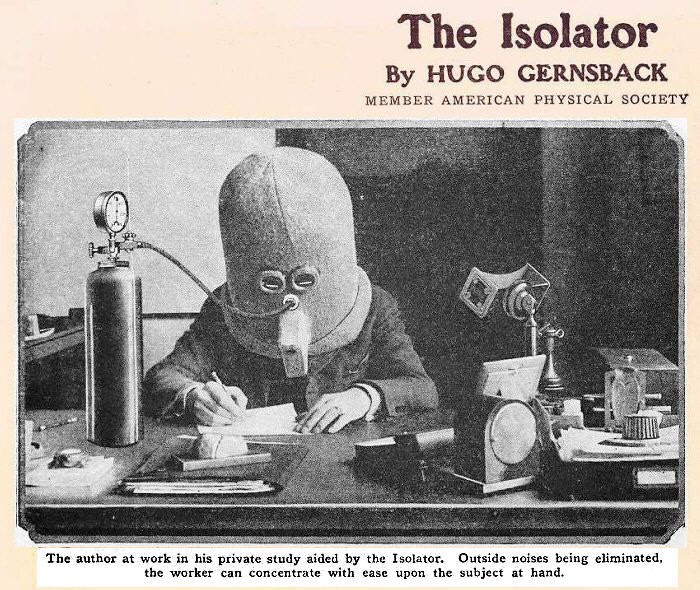--Quiet--
You're at: https://57296.neocities.org/quiet.html
(last worked on: October 24th, 2021b)
 *
There are few things more vulnerable in our society, more crosswise with
our (mixed) culture, more difficult to advance, secure and rationally discuss
--than matters of solitude, quiet, noise abatement --places of sanctuary
for the soul to seek within, places for long, uninterrupted thought.
*
There are few things more vulnerable in our society, more crosswise with
our (mixed) culture, more difficult to advance, secure and rationally discuss
--than matters of solitude, quiet, noise abatement --places of sanctuary
for the soul to seek within, places for long, uninterrupted thought.
* I hope to keep this page short, simple, directive
and supplementary to the excellent web pages on these issues to be found
at:
> Right to Quiet at: https://quiet.org/about-right-to-quiet/
> http://www.silencethehorns.org/about.html
> Noise
Abatement Society, their "Quiet Mark" program^ --and elsewhere.
> Noise Free America at: https://noisefree.org/
^ For rating the quietness of appliances, which has
been well received by industries in England and many European nations.
* Aside from the introspection, spiritual peace, and
the philosophy of it, should any town, city or existing community (with
adequate physical isolation) wish to experience a cultural and economic
renaissance (as well as the difficulties associated with booming real estate
values), it need only adopt and enforce an effective and rational noise
ordinance (or "CC&Rs" for a PUD/community within a city).
The following space is reserved to extoll the virtues
of --

A quiet City/town/PUD/gated
community --of the future

* And/Or: try this idea
on for size.
A good place to start would be with
ordinances controlling the use of back-up
beepers within the limits of a city or planned
unit development --since such a forward looking community would also be
looking forward to phenomenal growth and construction. (Here's
a good, 2-sided discussion on that issue.)
* Approaches to such community developments do exist
and not all of them are high priced "gated communities" for the elite.
I live near a pleasant one for ordinary retired folks who get by on their
Social Security.
Unfortunately, I don't know of any "Century 21" class
national real estate companies which help us locate and purchase such properties.
You can get run downs and comparative charts on a range of other issues
which might concern the home buyer or renter (crime, weather, schools,
clinics, etc.), even panoramic neighborhood photos, but no information
about effective noise control.

* Please correct me if I'm wrong.
If there is indeed such a real estate chain, it will get free top billing
here and probably at several other web sites that I'm aware of as well.

I suggest this is not only a fantastic opportunity
for a national real estate chain to exploit, but a spark plug which would
spur healthy competition for livability in general. The civic prizes to
gain include a flood of discriminating home buyers who also happen to be
successful cultural creatives: consulting engineers, scientists, inventors,
literary authors, screen writers, on-line educators, university extension
professors, artists, programmers --folks with portable professions and
vocations who think and communicate for a living. How many towns are there
who'd like to open up a can of civic renaissance and pride --especially
for those which lead the way, those which are "firstest with the mostest"
peace and quiet to offer.
I don't think we're talking much municipal investment
and risk. A well drafted ordinance (with guidance from the Rutgers Noise
Technical Assistance Center^), and routine enforcement, paid for in part
with fines --should cost less than filling potholes.
^ Contact: Eric M. Zwerling, M.S. / Director, Rutgers
Noise Technical Assistance Center, Rutgers University (Specialist in Noise
Law and Enforcement Training) <Zwerling@envsci.rutgers.edu>

* As to municipal noise ordinances
and what's Constitutionally do-able, city councils (working closely with
legal counsel and the Rutgers NTAC) should take note, both of their existing
"nuisance ordinance" (which I've seen modeled as "Ordinance 100" in some
venues), and of court cases which have successfully challenged the enforcement
of such ordinances. I have no legal education, but anyone can suggest starting
points for qualified inquiries and opinions.
* Traditional noise ordinances might include a permit
process to sanction the use of a "sound truck" for a limited period of
time, provided that an adequate reason is given (an impending election,
perhaps) for such an intrusive disturbance. To my reading of our city's
nuisance ordinance (which is quaint enough to concern itself with collar
bells on pets), the term "sound truck" is broadly defined, so as to easily
include "boom cars".
Whether or not boom cars can be curtailed with such
a legal tool has to be considered against the background of relevant court
cases. Some years ago, wanton horn blowing in the City of Eugene, Oregon
was successfully defended on the basis of it being "free speech".
* I've been impressed with how competent legal counsel
can re-frame and reword laws/ordinances in order to avoid objections, but
to still accomplish the same (or maybe a better) social purpose. Instead
of going to the mat with the methodology and calibration of sound pressure
meters, the language "plainly audible ---" (to a sworn officer) seems to
have obviated much technical tedium. Again: the Rutgers NTAC is abreast
of such developments.

* Our U.S. culture suffers from delusions that The
Individual can captain his ship, king his castle, take matters in hand,
look after his/her own interests --and then the invisible hand of the free
market will eventually sort things out for us. The pervasiveness of noise
defies such efforts. --Craig
 *
There are few things more vulnerable in our society, more crosswise with
our (mixed) culture, more difficult to advance, secure and rationally discuss
--than matters of solitude, quiet, noise abatement --places of sanctuary
for the soul to seek within, places for long, uninterrupted thought.
*
There are few things more vulnerable in our society, more crosswise with
our (mixed) culture, more difficult to advance, secure and rationally discuss
--than matters of solitude, quiet, noise abatement --places of sanctuary
for the soul to seek within, places for long, uninterrupted thought.
